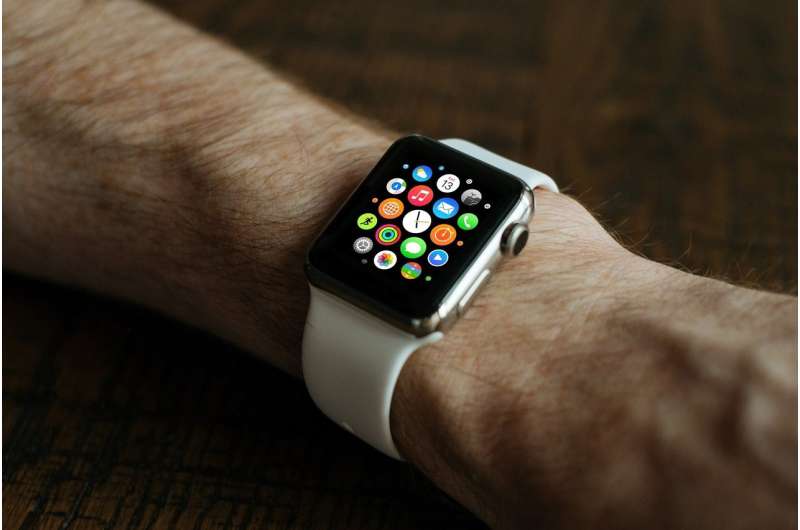This article has been reviewed according to Science X's editorial process and policies. Editors have highlighted the following attributes while ensuring the content's credibility:
fact-checked
peer-reviewed publication
trusted source
proofread
Wearable devices may increase health anxiety, atrial fibrillation study finds

Using a wearable device, such as a smart watch, to track health data and symptoms, is supposed to help people monitor their health and address symptoms as quickly as possible to spur positive health outcomes. But for people with atrial fibrillation, also known as Afib, using a wearable device to monitor the heart rate and to alert wearers of an irregular heartbeat might not be as helpful as wearers think.
A new study in the Journal of the American Heart Association, led by Lindsay Rosman, Ph.D., assistant professor of medicine in the division of cardiology at the University of North Carolina School of Medicine, is the first to show that wearable devices, such as smart watches, can significantly amplify anxiety and increase health care use in patients with Afib.
The study included 172 patients from UNC Health with a prior diagnosis of Afib who completed a survey and had their information linked to electronic health records. About half of the study sample had a wearable device and their data was compared to individuals without a wearable device. Rosman and her team found that patients with Afib who use wearables are more likely to be preoccupied with their heart symptoms, report concerns about their AFib treatment, and use health care resources compared to Afib patients without these devices.
Providers and health care clinics were also impacted, as wearable users were more likely to call the clinic and send messages to their health care providers than individuals who did not have a device.
Also, 1 in 5 AFib patients who used wearables in this study experienced intense fear and anxiety in response to irregular rhythm notifications from their device. And a similar proportion (20%) routinely contacted their doctors when ECG results were abnormal or indicative of possible Afib. But it's unclear if they actually needed to see a doctor, due to the alerts from their devices. It's also unclear if the reported anxiety contributed to the worsening of symptoms, although anxiety has been a well-documented contributing factor to various conditions, including Afib.
"Given the significant increase in use of wearable devices in this patient group (and the population in general)," said Rosman, "we believe prospective studies and randomized trials are needed to understand the net effects of wearables—including their alerts—on patients' health care use and psychological well‐being, as well as the downstream effects on providers, hospitals, and health systems."
More information: Lindsey Rosman et al, Wearable Devices, Health Care Use, and Psychological Well‐Being in Patients With Atrial Fibrillation, Journal of the American Heart Association (2024). DOI: 10.1161/JAHA.123.033750


















